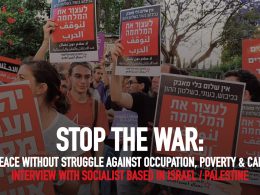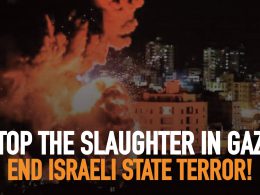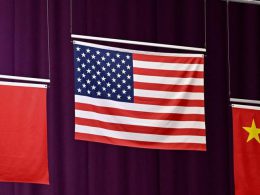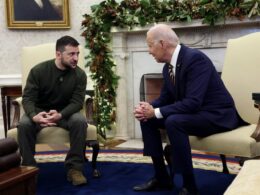Plans to be discussed tomorrow at meeting of EU Ambassadors to send an EU force of at least 700 to 1,000 soldiers within a few weeks will offer no stability or way forward for ordinary people in the Central African Republic.
Last month, the French government said its military intervention would stop the country collapsing into anarchy. The facts however, speak for themselves – in a country with a population less than Ireland, nearly a million people have been displaced, 500,000 the country’s capital Bangui.
The plan for another military adventure in Africa has nothing to do with protecting local people or being a humanitarian mission. European powers, particularly France, even after formal independence of the Central African Republic have had a long history of supporting blood-soaked dictators and installing puppet regimes. The military intervention today is part of broader geo-political games, with Western governments wishing to show it can flex its muscle in the region and secure control of the massive mineral wealth in the country.
The response in the press from Department of Defence to the question of Irish troops being central to the Central African Republic has been ambiguous. Irish troops have previously been involved in UN missions in Congo, and last year Irish troops assisted in training an army guilty of gross violations of human rights. The Irish government should refuse to endorse this military adventure and at the very least clearly rule out the use of Irish troops.
Rather than military adventures and sectarian militias the people of Central African Republic need an alternative based on the challenging of the massive poverty and inequality in the country. The Central African Republic has valuable natural resources which are effectively pillaged.
Ordinary people of the Central African Republic see none of this vast wealth. For example among the Resources of the country are extremely valuable diamonds. However diamond miners work for $4 a day. In the country the average life expectancy is 40 and HIV is rife.
Despite the fact that western media don’t mention them, workers’ and trade union organisations exist in this country and have not disappeared. At the start of 2013 a strike wave took place against the rising cost of living, for payment of back-pay, and for access to water. The development of such an independent movement of workers, farmers and urban poor to challenge the successive corrupt governments is the only real political alternative for the people of the Central African Republic.











